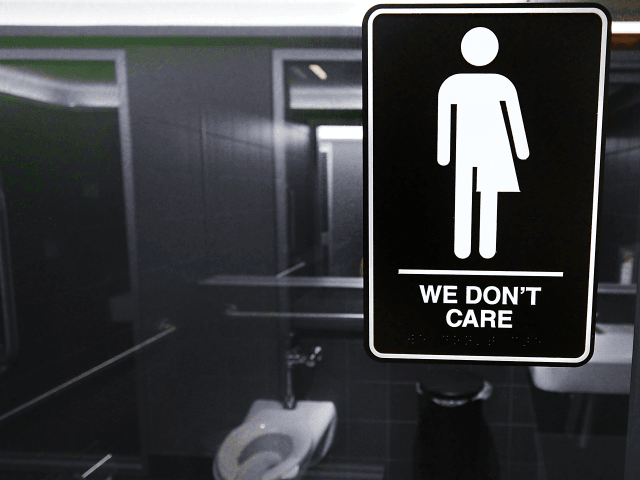The British Broadcasting Corporation (BBC) has doubled down on its publication of a poem describing the “struggles of getting a haircut as a non-binary person”, warning that critics have been “reported”.
BBC The Social, an off-shoot of BBC Scotland which claims it “brings you fresh up and coming talent from Scotland straight to your social media feeds”, featured a person who claims to be neither male nor female in the video, which sees them describe how awful it is to have to choose between “the salon” or “the barber’s”, given their gender identity.
“I’m sure you’ve seen the signs, gent’s trim five quid, woman’s trim nine… as usual there always seems to be a higher price to pay for those who are female,” observes the poet, Gray Crosbie.
“We’re queer and we’re here and life can be tough out there, so do you have to make a fuss or could you just cut our fucking hair?”, she said.
Many viewers were not especially enthused with the performance, however, or with indulging the notion that some people are so unique they exist entirely outside the gender binary.
“And people wonder why the license fee is resented,” remarked author and commentator Peter Lloyd, referring to the compulsory licence poll tax through which all people who watch live television are required to fund the BBC, regardless of whether or not they actually consume BBC content.
“I don’t think I’ve seen such a load of rubbish from the BBC for about… 5 minutes,” quipped another viewer.
“Previous generations feel your struggle,” said another, alongside a picture of young soldiers storming the beaches of Normandy under fire on D-Day.
“It’s been a tough 24 hours here, fighting hate from all around the world, all because we shared the lived experience of a young person in Scotland,” the BBC intoned on the Twitter page for BBC The Social following the blowback.
“We take threats and bullying very seriously here at The Social and we have been reporting those tweets,” the corporation added, capping its message with “#BeKind”.
It is not clear whether the corporation was referring merely to reporting critical replies to Twitter, or to law enforcement — with British police having proven rather gung ho about pursuing people for mean tweets.
The Police Scotland force, in particular, is known to keep a database of people accused of so-called “non-crime hate”, including offensive jokes — and regardless of “whether there is any evidence to identify the hate element” of these “incidents”.
“Officers will consider the circumstances around all hate reports, and while not every report will amount to criminality, this enables officers to consider and take preventative [or] protective measures to address any emerging concerns,” explained Chief Inspector Coleen Wylie, suggesting law enforcement would be keen to harass members of the public merely on the suspicion that they may commit a so-called “hate crime” at some point in the future.
An instance of how this harassment by police officers can play out in real life was demonstrated in England’s highest court last week, when a man who had made jokes about transgenderism online and was visited by a police officer over it won his case against Humberside Police. Harry Miller, a former policeman himself, was told by an officer that he was being visited because the force wanted to “check his thinking” over the non-criminal tweets.
Ruling in favour of Mr Miller, the judge presiding criticised the police force for visiting the man at his home and his place of work, and even compared the tactics to those of political secret police forces of repressive regimes. Mr Justice Knowles said:
The claimant’s tweets were lawful and there was not the slightest risk that he would commit a criminal offence by continuing to tweet.
I find the combination of the police visiting the claimant’s place of work, and their subsequent statements in relation to the possibility of prosecution, were a disproportionate interference with the claimant’s right to freedom of expression because of their potentially chilling effect.
…
In this country we have never had a Cheka, a Gestapo or a Stasi. We have never lived in an Orwellian society.
The judge did not, however, rule that Miller’s other challenge against the state of the College of Policing’s guidance on pursuing hate crimes more broadly was unlawful.
Follow Jack Montgomery on Twitter: @JackBMontgomery
Follow Breitbart London on Facebook: Breitbart London

COMMENTS
Please let us know if you're having issues with commenting.